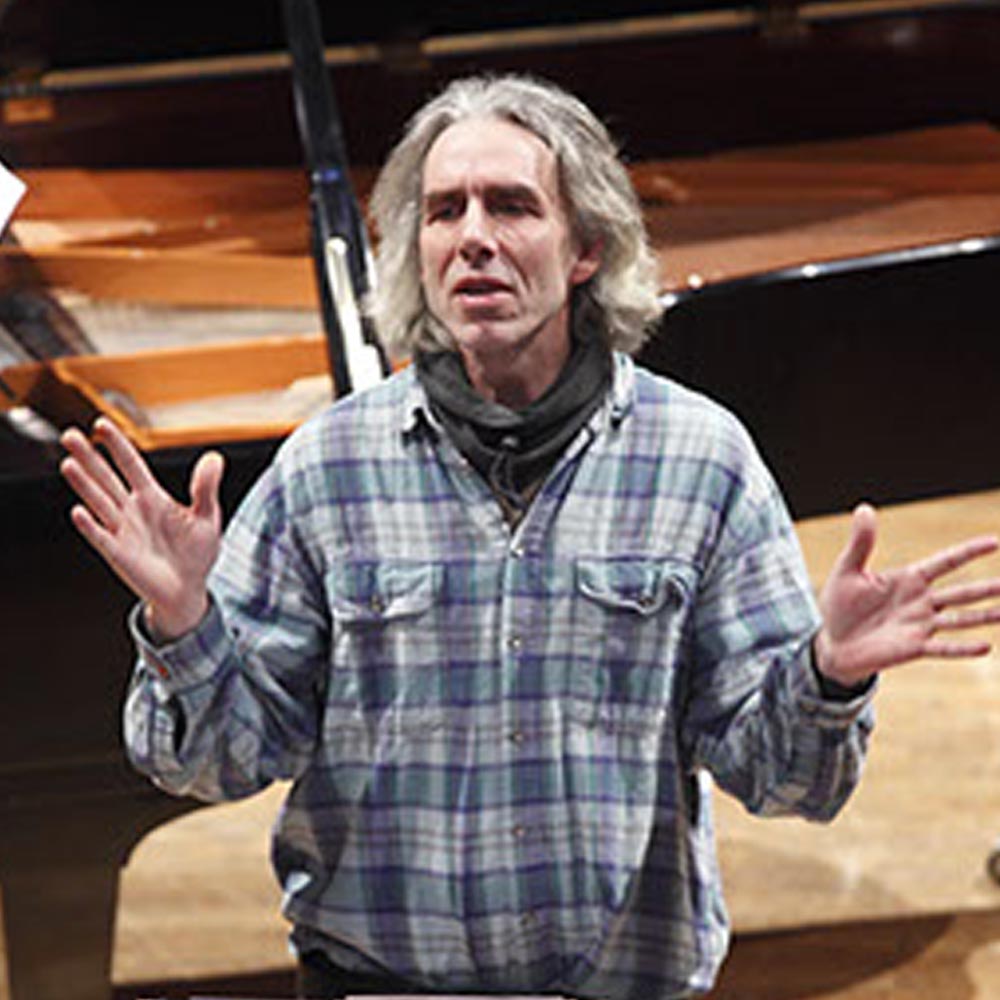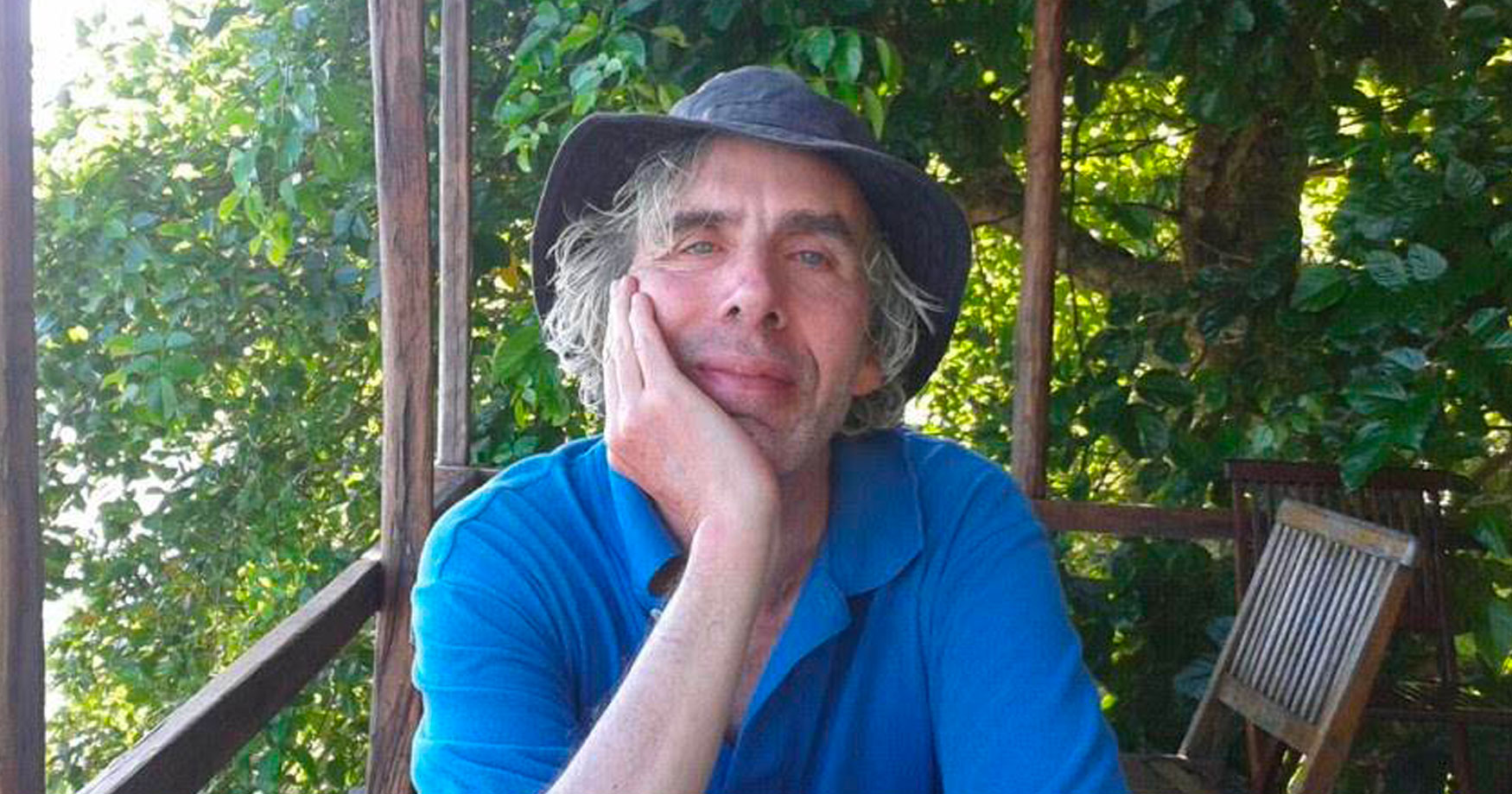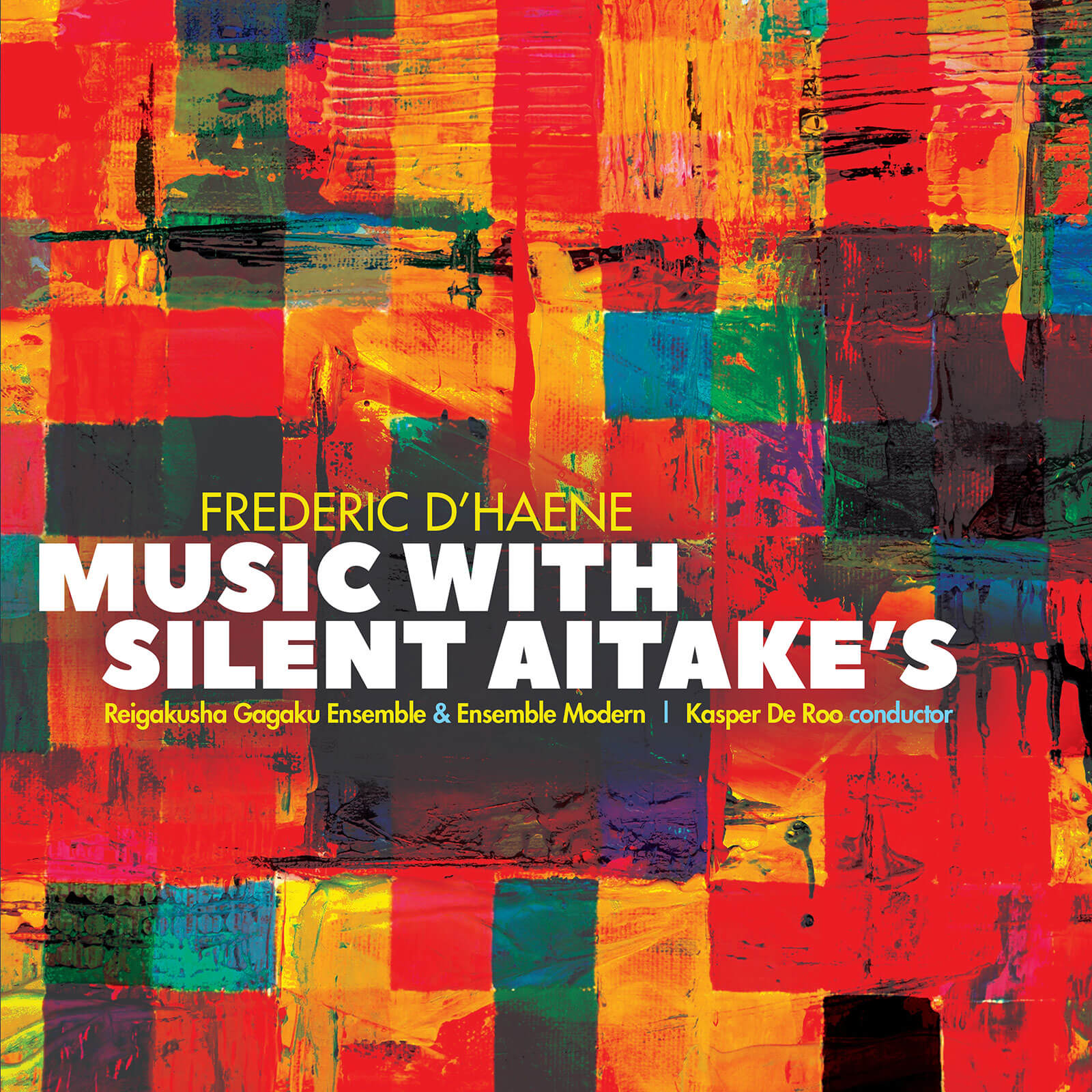
Frederic D’Haene is a Belgian avant-garde composer and creator of his own composition technique called ‘paradoxophony’ or ‘paradoxical coexistence.’
He was born on August 24, 1961, in Kortrijk, Belgium, and was introduced to music at an early age by his father, who played classical and jazz piano. D’Haene also started to play the piano, and enrolled in the local academy. His first interest in composition arose when he was 14 years old, and he was inspired to write a three-minute piece every day. In 1986, he graduated with a degree in musicology from the University of Ghent with a dissertation on Webern’s Variations for Orchestra. He joined the Royal Conservatoire in Liège, where he followed the teachings and guidance of the renowned composers Frederic Rzewski, Walter Zimmerman, Henri Pousseur, and Vinko Globokar. In 1986 Frederic also discovered Gagaku music (traditional court music from Japan) through the masters Tadatoshi Miyagawa and Kanehiko Togi. This new musical universe inspired him to write Music with Silent Aitake’s, a piece that achieved a unique coexistence between western and Japanese music.
In 1988 he attended the International Summer Course for New Music in Darmstadt, which proved to be a decisive moment in his musical career with Marianne Schroeder and André Hebbelinck discovering his music. From 1990 to 1996, D’Haene worked at the Royal Conservatoire in Liège as an assistant to Frederic Rzewski. Between 1999 and 2000, he taught aesthetics at the Hogeschool voor Wetenschap en Kunst in Ghent, before dedicating himself entirely to his own creations and moving to the Netherlands, where he lived as an independent composer. He returned to Belgium in 2009 and founded De Muziekautarchie, a non-profit organization that aims to improve composers’ socio-economic statuses. More recently Fluxus – static friction was performed by Het Collectief and conducted by Robin Engelen in Tilburg (NL) in December 2013, in Leuven (BE) in October 2015 and Gent (BE) in June 2018. Hearing from nowhere-part 3 was performed in Geneva (CH) by the ensemble Contrechamps and conducted by Michael Wendeberg in October 2014, and Music with Silent Aitake’s was conducted by Kasper de Roo and performed in January 2015 by the Ensemble Modern and Raigakusha at the Frankfurter Positionen festival (DE).
To date, D’Haene has mainly written commissioned work. His pieces have been conducted by James Wood, Mark Foster, Michael Wendeberg, Kasper de Roo, and Robin Engelen, and performed by numerous musicians and ensembles, including the Ensemble Modern, Contrechamps, Het Collectief, Quatuor Danel, Champ d’Action, and the soloists Geoffrey Madge, Frederic Rzewski, Armand Angster, Jean-Pierre Peuvion, Daan Vandewalle, Marianne Schroeder, Claude Coppens, Wibert Aerts, David Cohen, Wim Konink, and many others.
His varied work comprises orchestral music, chamber music, pieces for solo instruments, and vocal music. These works have been programmed, recorded, and broadcast in Belgium and abroad by a large number of festivals and venues such as deSingel (BE), Ars Musica Festival (BE), Transitfestival (BE), Blackheath Halls (UK), Edmonton New Music Festival (CA), Toronto Music Gallery (CA), Gesellschaft für akustische Lebenshilfe (DE), Frankfurter Positionen festival (DE), and others.
After three years of silence due to debilitating multiple sclerosis, Frederic began writing Resist to exist, a piece of opera/experimental musical theatre about freedom and power, devised and shaped along a theological and humanist line on the one hand and a Palestinian line on the other. The texts chosen featured are by Mahmoud Darwish in English translation, Dietrich Bonhoeffer, Albert Camus, and Sade, but also by Palestinian solidarity campaigners and other political and militant sources.
Albums
Music With Silent Aitake’s
Catalog Number: RR8008


